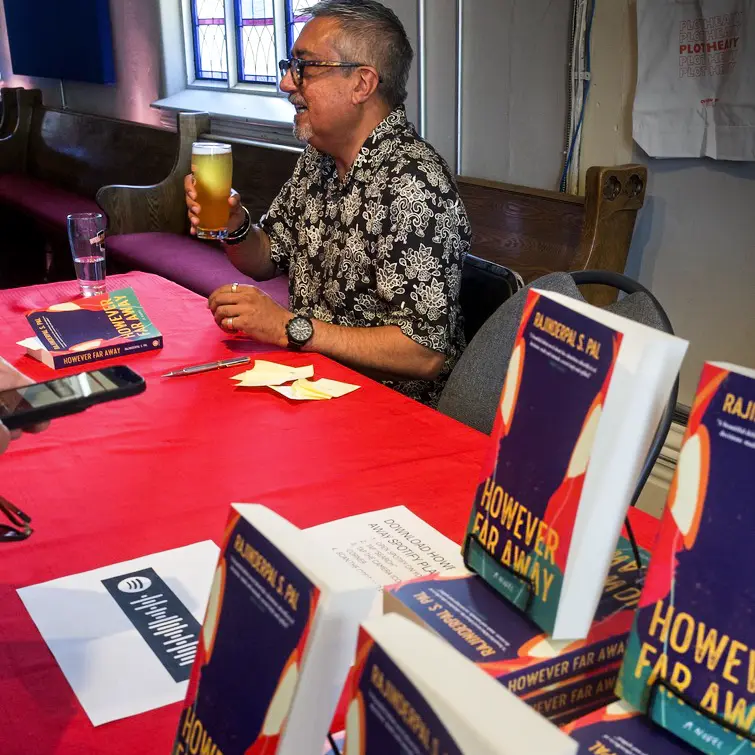Going beyond the pages can make meetings more engaging, memorable, and interactive. Whether it’s immersing yourselves in the book’s setting, exploring creative activities, or even connecting with the author, here are fun ways to bring your club’s reads to life.
1. Themed Meetings: Step Into the Story
Transport your members into the world of the book with a themed meeting. Whether it’s dressing in period-appropriate attire, serving dishes mentioned in the book, or playing music from the era, these details create an immersive experience.
- Discussing a book about moral dilemmas? Have a club member prepare a “What Would You Do?” scenario game, where each member answers tough ethical questions based on the characters’ choices in the book.
- Reading a historical fiction novel? Set up a meeting space decorated in the style of that time.
- Discussing a book set in Italy? Bring Italian wine and snacks.
- Reading a mystery? Have a club member prepare a small “case file” summarizing the book’s twists and turns.
2. Character Debates & Role-Playing
Deepen your engagement by embodying characters from the book. Assign roles and have members argue from their character’s perspective. This is especially fun for books with morally complex characters or unreliable narrators.
- Have each member prepare a defense or prosecution for a controversial character’s choices.
- Hold a mock “interview” where one person plays the author and others ask questions about character motivations.
3. Hands-On Activities & Creative Expression
Sometimes, actions speak louder than words. Engaging in hands-on activities inspired by the book can add a fresh dimension to discussions.
- Read a novel featuring art or music? Try a simple painting or sketching session, or bring in similar music.
- Finished a book with a strong poetic voice? Have members write short poems from a character’s perspective.
- Read a book that involves cooking or baking? Make a dish inspired by the story.
4. Beyond the Pages: Visiting Related Locations
If the book is set in a real-world location, why not explore it?
- Read a novel set in your city? Take a field trip to a location mentioned in the book.
- Fictional setting? Visit a museum, gallery, or historical site that aligns with the book’s themes.
- Reading a book with a strong nature theme? Take a discussion walk in a scenic location.
- If you can’t visit the location directly, how about setting the scene with photographs and maps?
5. Connecting with the Author
One of the most exciting ways to enhance your book club experience is to connect with the author. Many writers are happy to engage with book clubs through virtual Q&As, or even in-person visits. Here’s how to make it work:
Virtual Author Events
- Live Zoom Q&A: Reach out to the author via their website or social media and invite them to join a virtual discussion. Be sure to prepare insightful questions in advance.
- Pre-Recorded Video Message: If a live event isn’t possible, ask the author to send a short video answering club members’ top questions.
Interactive Q&A Week
Not all authors can commit to a live event, but they might be open to a week-long virtual Q&A. Here’s how it works:
- Designate a private social media group, email thread, or forum for the event.
- Each day, post one or two club members’ questions and allow the author time to respond.
- Encourage members to engage with the responses by discussing or asking follow-ups.
Not all authors are easy to connect with. Why not see if you can find a podcast or interview with the author to experience?
6. Book-to-Screen Comparisons
If the book has a movie or TV adaptation, plan a watch party. Afterward, discuss the differences—what was left out, what was changed, and how the adaptation compares to the book’s original intent.
7. Expanding the Conversation
Sometimes, a book raises real-world questions worth exploring further. Bring in a guest speaker (a historian, psychologist, or expert related to the book’s themes) or research articles and news stories that tie into the book. This adds depth and insight beyond personal opinions.
Final Thoughts
A book club should be more than just a discussion—it should be an experience. Adding interactive elements, creative activities, and engaging with authors can make your meetings unforgettable. Try a few of these ideas and see how your club transforms into a place where stories truly come to life!
Elevate Your Book Club Experience with Author Engagement!
Make your book club experience even more engaging by inviting Rajinderpal S. Pal to join your discussion!
Whether it’s a virtual Q&A, a live book talk, or a special event for your group, this is a unique opportunity to connect with the author, gain deeper insights, and bring your conversations to life. Contact us to learn more about booking an appearance.













